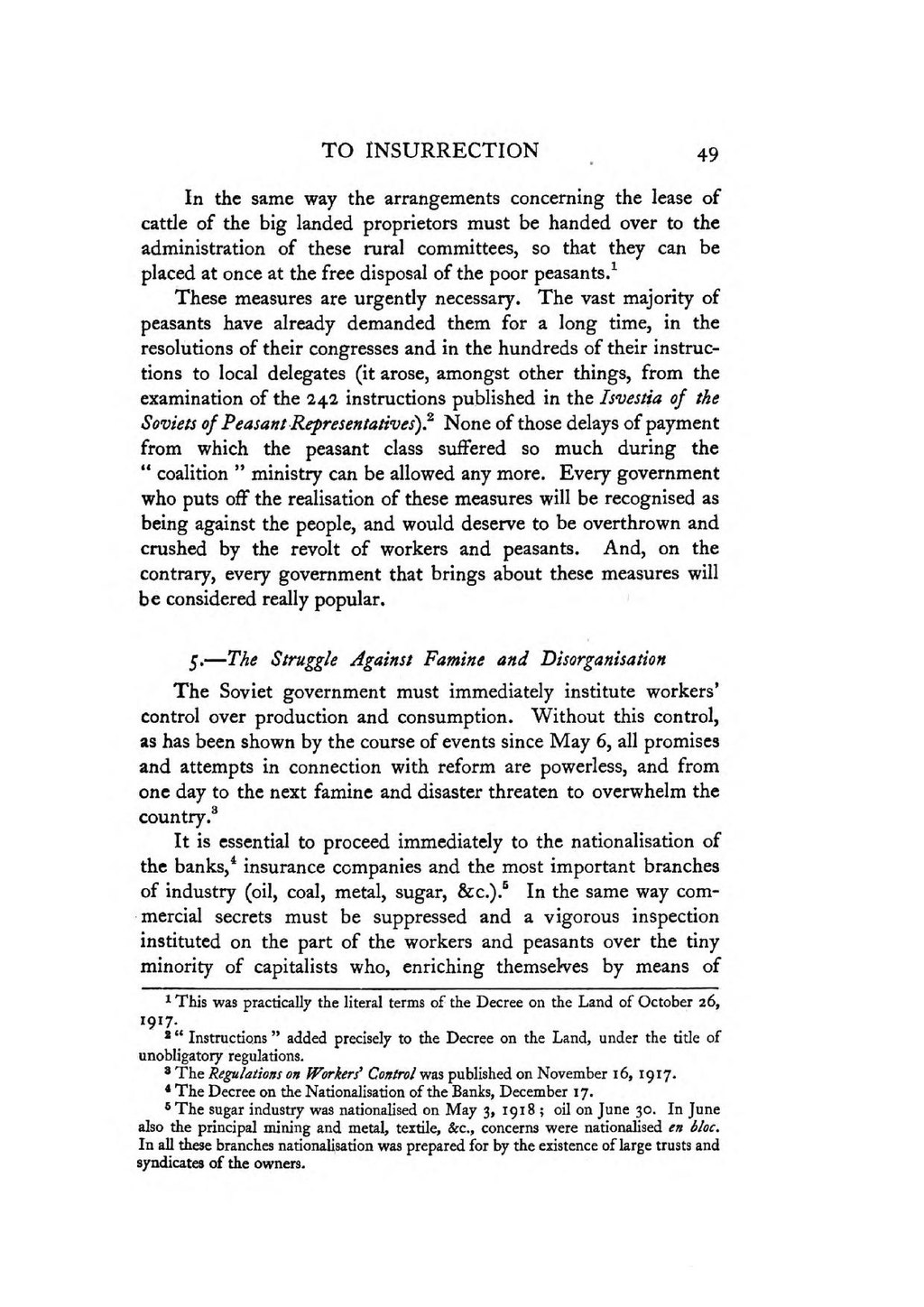In the same way the arrangements concerning the lease of cattle of the big landed proprietors must be handed over to the administration of these rural committees, so that they can be placed at once at the free disposal of the poor peasants.[1]
These measures are urgently necessary. The vast majority of peasants have already demanded them for a long time, in the resolutions of their congresses and in the hundreds of their instructions to local delegates (it arose, amongst other things, from the examination of the 242 instructions published in the Isvestia of the Soviets of Peasant Representatives).[2] None of those delays of payment from which the peasant class suffered so much during the "coalition" ministry can be allowed any more. Every government who puts off the realisation of these measures will be recognised as being against the people, and would deserve to be overthrown and crushed by the revolt of workers and peasants. And, on the contrary, every government that brings about these measures will be considered really popular.
5.—The Struggle Against Famine and Disorganisation
The Soviet government must immediately institute workers' control over production and consumption. Without this control, as has been shown by the course of events since May 6, all promises and attempts in connection with reform are powerless, and from one day to the next famine and disaster threaten to overwhelm the country.[3]
It is essential to proceed immediately to the nationalisation of the banks,[4] insurance companies and the most important branches of industry (oil, coal, metal, sugar, &c.).[5] In the same way commercial secrets must be suppressed and a vigorous inspection instituted on the part of the workers and peasants over the tiny minority of capitalists who, enriching themselves by means of
- ↑ This was practically the literal terms of the Decree on the Land of October 26, 1917.
- ↑ "Instructions" added precisely to the Decree on the Land, under the title of unobligatory regulations.
- ↑ The Regulations on Workers' Control was published on November 16, 1917.
- ↑ The Decree on the Nationalisation of the Banks, December 17.
- ↑ The sugar industry was nationalised on May 3, 1918; oil on June 30. In June also the principal mining and metal, textile, &c., concerns were nationalised en bloc. In all these branches nationalisation was prepared for by the existence of large trusts and syndicates of the owners.
